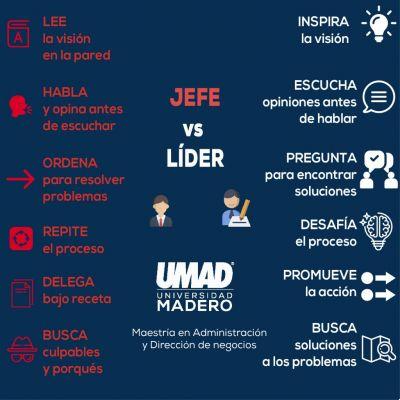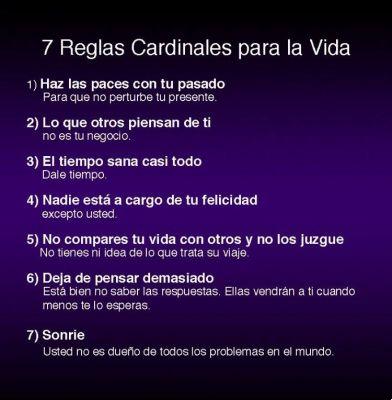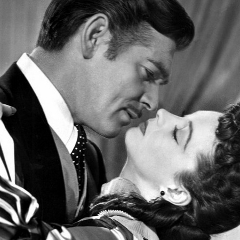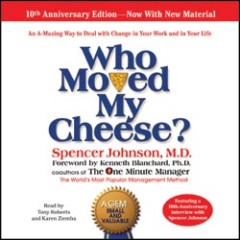That of the Magician is a powerful archetype. Learn how to learn his art and his powers.

"I don't believe in the magic of my books, but I do believe in the magic of reading a good book."
JKRowling.
This is the fourth post in a miniseries of articles dedicated to archetypes of the adult human being. If you don't have a clue what we're talking about, I suggest you read thereintroductory article, which explains the model of archetypes, its origins and its importance for your maturation process. At the end of the mini-series, don't forget to do the test to discover your dominant archetype.
It was no coincidence that last week I proposed an article on secrets of memorization. One of the peculiar traits of the archetype of the Magician is precisely the ability to have access to a knowledge reserved for a few, thanks to which one has full control of one's tools and the surrounding environment, so as to be able to achieve apparently impossible goals. But the magician's "powers" go far beyond a few quick-learning techniques. Let's find out together.
The archetype of the Magician: from Merlin to Patrick Jane
"Higitus Figitus Sbum, Presti-Digi-Torium…" C'era una volta Wizard Merlin: the good sorcerer with a white beard, always at the side of the future King, to instruct him and help him fulfill his destiny. Apparently a gregarious figure, the Wizard has always played a key role in postmodern mythology (and beyond): there would have been no Arthur without Merlin. There would have been no Harry Potter without Albus Dumbledore. There would have been no Frodo without Gandalf.

Today the archetype of the Magician has abandoned the long tunics, the beard and the white hair, to dress the elegant clothes of Patrick Jane. The modern magician, the Mentalist, uses psychology, hypnosis, rapid learning, science and statistics to transform the environment and behavior (his own and others') at will. I have already talked to you about mentalism, proposing you some techniques of cold reading (the famous cold reading). Here, the modern day “sorcerer” has given up on magic formulas and wands to embrace the enormous dormant potential of the human mind. There is an immense power hidden within us which, thanks to constant study and practice, can help us reach unimaginable goals.
If you too want to learn to exploit the hidden resources of your mind, you must first identify yourself witharchetype of the Magician. Are you ready? Let's start from the first stage of maturation of this archetype ...
The archetype of the Precocious Child
According to Moore's model of the 4 archetypes, it is not possible to access the adult archetype if the child archetype has not first developed. In the case of the Magician, the archetype that precedes him is that of the Precocious Child.
I still remember when as a child I used to slaughter balls to my parents by constantly asking “Why this. Why that "and my father decided to give me an illustrated book called" Why, Why ". I fell in love with it immediately. The Precocious Child archetype emerges precisely when the child feels theneed to know the world around him. Curiosity and amazement are the two peculiar traits of this archetype. The Precocious Child (or the Little Girl) loves to investigate and explore the functioning of things, constantly looking for answers that can satiate his hunger for knowledge. But even this archetype can have its shadows:
- A boy's curiosity is like a small flame, if not fed, it will inevitably go out. And thus emerges the shadow ofInexperienced, the one who has lost any interest in what surrounds him and has decided not to delve into anything, if not the lowest pleasures (television, junk websites, videogames, etc.). The Inexpert decided to give up the discovery not only for lack of interest, but also for fear: every time we try to discover something new, we expose ourselves to a risk, the risk of failure, the risk of being inadequate, the risk not to be up to it. The Inexperienced is therefore also a coward.
- At the other extreme we have the Little Cheater; the classic smart guy (too smart) who tries to demonstrate his superiority at every opportunity, often resorting to deception and manipulation. In Greek mythology, this archetype is well represented by Ulysses, who despite being able to return home thanks to his cunning, often finds himself in trouble precisely because of him. Another typical trait of the Little Swindler is thelove of appearances: it will certainly not be difficult for you to think of that friend who, while not being able to afford it, must necessarily show the latest generation smartphone or the new car bought with 180 installments that will never be paid.
In order not to give in to its shadows, the Precocious Child he must be able to passionately cultivate his thirst for knowledge; not to feel superior to others, but rather to share his discoveries, to become a mentor and a teacher. Yet the precocious child is still an unfinished archetype. To have full access to the magician's "powers", he will have to learn his jealously hidden secrets ...
The adult archetype: the Magician
As we did for the previous archetypes, let's now see what are the unique characteristics of the Magician archetype. Characteristics you might find yourself in, or simply characteristics that inspire you on your journey to personal growth.
- Intellectual curiosity. The Magician is the holder of knowledge, he is the one who, thanks to continuous study and constant practice, has managed to access secrets reserved for a few. Without necessarily having to use polished language, we could say that the Magician is what Malcolm Gladwell would call a Fuoriclasse, or an individual who has been willing to devote a significant portion of his or her existence, at least 10.000 hours, to deliberate practice. What is deliberate practice? I talked about it in this post.
- Love of technology. There is a very nice scene from "The Sword in the Rock", in which Merlin is struggling with a well and complains about the dark times in which he finds himself living: no electricity, no running water, etc. The Magician loves technology, is master of technological tools and knows how to use them to achieve his goals. Inventors, scientists, visionaries are classic examples of human beings who identify with the archetype of the Magician. An example above all? Steve Jobs of course.
"Any sufficiently advanced technology is indistinguishable from magic."
A.C.Clarke.
- Inventiveness. The Magician mixes strange ingredients to create incredible spells. Imagining modern wizards, we immediately think of inventors and scientists, but also entrepreneurs and startuppers (a term in vogue today), can be considered to all intents and purposes as wizards. After all, the ability to create from nothing, to create tools that simplify our life is a characteristic of the human species. Often we do not realize it, and instead of nourishing this ability of ours, we are content to take orders, imprisoned in our rat race.
- Reflexivity. As we have seen, the Warrior is the archetype of action; but he is often too impulsive. The Magician, on the other hand, is a chess player. His every move is well thought out, and he is able to predict the outcome in advance. From this point of view, the magician knows how to make important decisions.
- Passion for studying. We live in the information age, but not in the knowledge age. Information and knowledge are two very different elements. Today we can have access to any information in less than 0,18 seconds (Google's average search time), but few are willing to go deeper, study carefully and gradually learn more and more advanced knowledge. This attitude is often due to the absence of a effective study method.
Those who have great knowledge also have to take on enormous responsibilities. For this reason, the Magician must never give in to his dark side ...
Shadows of the Magician
Among the 4 archetypes (Warrior, Lover, Magician, King), that of the Magician, more than any other, can yield to the lure of power and indolence. This is how good Merlin risks turning into:
- Manipulator. “The Mentalist” is undoubtedly one of my favorite television series, also because it well photographs the archetype of the Magician. The protagonist, Patrick Jane, for example, has a troubled past as a manipulative psychic. Knowledge can be a drug that clouds our judgment: having secrets that few have access to can lead us to deceive others for our own personal gain. Thanks to the democratization of information, it is increasingly easier to unmask the manipulators, but as we have seen, there are few who are willing to transform information into knowledge. Do you want to be an unwitting victim or the master of your destiny?
- Lazy. At the other extreme we have the figure of the Lazy, the one who wishes to obtain “everything immediately”, who would like to have access to glory, success and knowledge, without however having to commit too much. The lazy person wastes enormous energy in search of the simplest way, finding every excuse to postpone action and commitment: he is thus destined to be an eternal "wannabe", that is, one who desires but does not obtain.
It is curious how Manipulator and Lazy go hand in hand. On the one hand there is a weak figure who tries every way to obtain results without committing themselves and on the other there are those who are ready to take advantage of this weakness to their advantage.
I see this happening every day: university students or hardened procrastinators (often the two figures coincide) who are looking for magic pill to solve all their problems. I take this opportunity to reiterate it: do not read my articles and do not buy my guides if you are not willing to really change, if you are not willing to "sweat". I assure you that out there is full of self-styled wizards who can't wait to sell you their phantasmagoric solution: “You will be able to fulfill all your dreams comfortably sitting on the sofa. What are you waiting for?! Call 899 61 now jerk! "
Practical course for wizards apprentices
Here we are at the practical section of the article. So what does it take to become a Mago modern?
- Practice the 3 "Ls". Do you know what Lifelong Learning is? Continuous learning is one of the distinctive traits of the Magician. If you have stopped studying and find yourself in a low-knowledge job, stop blaming the politicians or the economic crisis - they certainly have their responsibilities, but you have to shoulder your responsibilities. Today China churns out 100.000 engineers a year, and there are at least 1 billion people who can do your same job better and at one-tenth the cost - you are irrelevant. Unless you decide to invest in yourself. Continuously studying, even after graduation, always learning new knowledge, knowledge that is difficult to replicate, this is the only secret to not be irrelevant. We now live in the Connection Economy: either you stand out or you become extinct. Are specialist courses too expensive? What if I told you that you can attend Harvard, Oxford and MIT courses from home or while commuting… in gratise ?! Call 899 61 now… XD I'm kidding! Find the post I wrote on Lifelong Learning clicking here.
- Read 52 books a year. "Why You Should Read 52 Books a Year" was one of the most successful articles of this year by far. This surprised me a lot: after all Spain, in terms of reading, is the rear of any ranking; probably the average GetPersonalGrowth reader has little to do with the average Spanish (mih, what a pimp I am today!). That said, if you really want to absorb the Magician archetype, you can't ignore reading. Make it a daily habit, read at least 1 hour a day and alternate technical books with fiction books. Properties of language, effective communication, new ideas: these are just some of the advantages that you can derive from reading. Read.
- Learn 4 new skills per year. What was the last thing you learned? The human being by its nature tends to "sit down"; after the canonical period of studies, the learning rate decreases dramatically. It takes enormous self-discipline to keep learning and practicing new skills. Personally, every year I set myself the goal of learning at least 4 new skills: whether it is a new language, a memorization or quick reading technique, a programming language, or the secrets of mentalism, it doesn't matter. It does not necessarily have to be something that has immediate practical implications, the goal is to keep the brain in constant training and ... have fun. What is it that you would like to learn how to do in the next 3 months?
- Crea. Do you have 10.000 ideas but never put any into practice? The Magician is able to create from nothing. This does not mean that we must all be artists, inventors or entrepreneurs, but today, more than ever, we need new ideas, new services, new discoveries. What is that brilliant idea that you have not yet realized? What skill or resource do you need to put it into practice? Being creative is important, but creating is even more so. Stop procrastinating and make your dream come true. Today.
- Teaches. Speaking of the Dale's Cone of Learning, we have seen how putting into practice what we learn is the most effective strategy for remembering. Teaching others is the most elegant form of practice: only if you have truly learned something are you able to pass it on to someone else. The Magician is a mentor, a guide, a teacher. Unlike the Manipulator, he shares his knowledge, because he knows that the more he shares his knowledge, the more he is able to learn it thoroughly and acquire new knowledge.
“If you have an apple, and I have an apple, and we exchange them, then you and I always have one apple each. But if you have an idea, and I have an idea, and we exchange them, then we both have two ideas. "


























